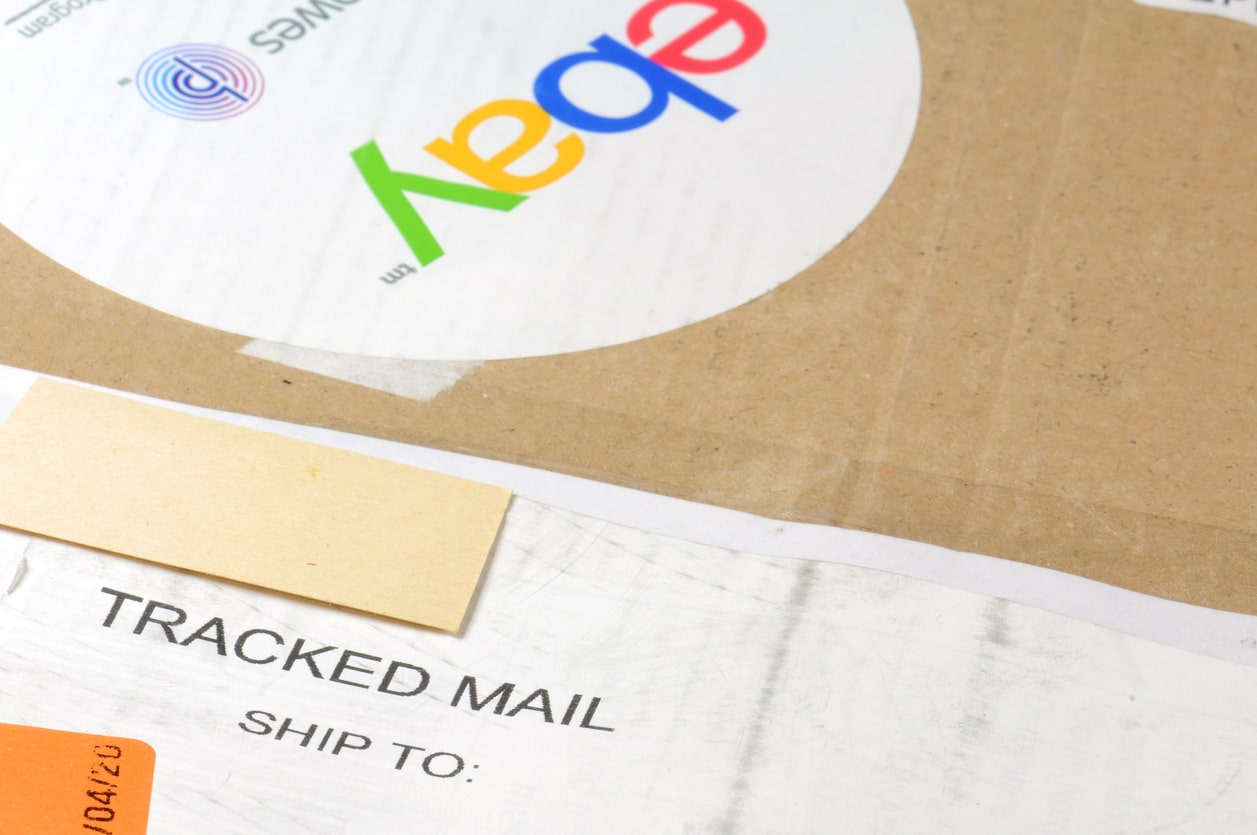Language:
Starting a Business on eBay: How Old Do You Need to Be?

Looking to start your own business on eBay? This can be a great opportunity to live out your entrepreneurial spirit. But one question that often comes up is, “How old do you have to be to become an eBay seller?”
In this article, we’ll go over the age requirements set by eBay and give you the information you need to start your entrepreneurial journey on one of the largest online marketplaces in the world.
How Old Do You Have to Be to Sell on eBay?
In order to sell on eBay, teens under the age of 18 require parental supervision. eBay requires that the account be owned by the parent or guardian who is responsible for all transactions. This ensures that legal responsibilities are assumed by a consenting adult.
Parents must set up the account and act as the account owner, then add the teen as an authorized user, and monitor all activities, from managing offers to customer interactions.
How to Start an eBay Business in 7 Steps?
Ready to build your eBay business? Let us dive into the seven key steps to figure out what you need for starting a business on eBay and launch your sales.
1. Identify the Specific Products That You Intend to Sell
Identifying the products you want to sell will greatly affect your eBay business. Research the market to understand trends and demand. You should also consider your interests and expertise to find the right products.
As you analyze the competition, test the market with smaller inventories and stay updated on market trends and adjust your product categories accordingly.
2. List Your Items
Next, you’ll want to focus on promoting your listings and fine-tuning your customer service to bolster your reputation. Here’s a quick checklist:
- Create an eBay Account
- Gather Product Information
- Choose the Listing Format
- Create the Listing
- Add High-Quality Photos
- Set a Competitive Price
- Select Shipping Options
3. Decide the Business Structure
When choosing a business structure for your eBay venture, you need to weigh several factors. You can operate as a sole seller or as a legal entity. Individual sellers operate as sole proprietorships and do not require formal registration.
Alternatively, a business entity such as a limited liability company (LLC) or corporation provides separate legal and financial liability protection.
Consider personal liability, tax implications, long-term goals, and associated costs and complexities to choose the most appropriate structure for your eBay business.
For further information, take a look at this article on how to start a small business from home.
4. Create a Business Account
Here are the key steps on how to create a business account:
- Go to the eBay website (www.ebay.com) and click on the “Register” or “Sign In” button located at the top of the homepage.
- On the registration or sign-in page, look for the option to “Create a Business Account” or “Register as a Business.”
- Fill out the required information to create your business account. This typically includes your business name, contact information, email address, and a secure password.
- eBay may require you to verify your contact information by entering a verification code sent to your email or mobile number. Follow the prompts to complete the verification process.
- To facilitate transactions on eBay, you’ll need to link a payment method to your business account. You can choose to link a PayPal account or set up managed payments directly through eBay.
- Depending on your location and specific circumstances, eBay may require additional identity verification steps. This can include providing identification documents or verifying your business entity.
5. Comply With eBay Rules and Regulations
To comply with eBay’s rules and regulations, familiarize yourself with their policies and guidelines. Upon creating your business account, you will be required to read through the terms and conditions to ensure that your business practices comply with the law and have a high standard of value. Keep track of eBay’s policy updates to ensure continuous compliance.
6. Develop a Comprehensive Financial and Tax Strategy
When your sales start increasing, you will want to ensure that your finances are well organized and properly allocated to maximize profit. Here’s how you can develop a comprehensive financial and tax strategy:
Separate Business and Personal Finances:
- Open a bank account for your eBay business to keep your personal and business finances separate.
- Use accounting software or spreadsheets to track income and expenses specific to your eBay business.
Track Income and Expenses:
- Maintain detailed records of all income and expenses related to your eBay business.
- Categorize expenses, such as inventory costs, shipping fees, eBay fees, packaging materials, and any other relevant business expenses.
Understand Tax Obligations:
- Familiarize yourself with the tax obligations associated with your eBay business, such as sales tax, income tax, and self-employment tax (if applicable).
- Consult with a tax professional to ensure you understand and comply with tax laws specific to your jurisdiction.
Consider Professional Help:
- Engage the services of an accountant or bookkeeper who specializes in small businesses or e-commerce to assist with managing your financial records and preparing tax returns.
- They can help ensure accuracy, identify potential deductions, and provide guidance on tax planning strategies.
Estimate and Set Aside Taxes:
- Estimate your tax liability based on your projected income and expenses.
- Set aside a portion of your earnings for tax payments, either by making quarterly estimated tax payments or saving the funds in a separate account.
Maintain Proper Documentation:
- Keep all relevant financial documents, such as receipts, invoices, and sales records, organized and easily accessible for future reference or potential tax audits.
7. Start Selling
After setting up shop, you’re ready to begin your sales journey on eBay. To thrive in your eBay venture, you must consistently refine your sales strategies, stay attuned to market trends, and ensure that your pricing remains competitive — thereby launching a dynamic eBay business designed for sustained success.
Advantages of Selling on eBay
Selling on eBay offers numerous benefits for individuals and businesses looking to engage in e-commerce. Let’s explore some of the key advantages:
Broad Customer Base: eBay provides access to a vast global customer base, giving you the opportunity to reach millions of potential buyers.
Easy Setup and Low Costs: Starting an eBay business is relatively easy and cost-effective. You don’t need to invest in creating a separate e-commerce website or worry about complex technical aspects.
Flexible Selling Options: eBay offers various selling formats, including auctions and fixed-price listings. This flexibility allows you to choose the most suitable selling method for your products.
Factors to Evaluate Prior to Selling on eBay
Although selling on eBay has its benefits, there are some points you should keep in mind before you start. Here are some key considerations:
Intense Competition: eBay is a highly competitive marketplace, with numerous sellers vying for buyers’ attention. Standing out among the competition requires effective marketing strategies, competitive pricing, compelling product listings, and excellent customer service.
Fees and Expenses: Selling on eBay entails various fees, including listing fees, final value fees, and optional service fees for additional features. It’s crucial to factor these costs into your pricing strategy to ensure profitability and assess their impact on your overall business finances.
Customer Service Responsibilities: Dedicate time and resources to deliver a positive customer experience, as negative feedback or poor ratings can impact your reputation and sales.
Your Guide to Starting Your eBay Business at Any Age
Starting a business on eBay can be a rewarding venture, offering a broad customer base, easy setup, and flexible selling options. However, it’s important to evaluate factors such as intense competition, fees, customer service responsibilities, shipping logistics, and market volatility.
To streamline your eBay business and ensure smooth financial management, consider leveraging our bookkeeping services.
At doola, we specialize in providing comprehensive bookkeeping solutions tailored to e-commerce businesses. Our team of professionals can assist you in managing your eBay finances, tracking income and expenses, handling tax obligations, and ensuring compliance with financial regulations.
Reach out today to get your finances in order and your eBay business up and running.
FAQs
What documents do I need to provide eBay with to prove my age?
To verify your age on eBay, you may need to provide a copy of your government-issued ID or any other legal documents that clearly state your date of birth.
What if I get caught selling on eBay underage?
If you’re caught selling on eBay underage, your account may be suspended or limited as it violates eBay’s policies.
Why does eBay have an age restriction for sellers?
eBay has an age restriction for sellers to comply with laws and regulations, ensuring that all parties involved in transactions are legally capable of entering into binding contracts.
Are there any exceptions to this eBay age requirement?
eBay does not generally offer exceptions to its age requirement, as it’s a legal necessity.
Can I still buy items on eBay if I’m under 18?
While eBay’s user agreement restricts those under 18 from selling, individuals under 18 can buy items on eBay if they use an account created by a parent or guardian and are supervised during purchases.








